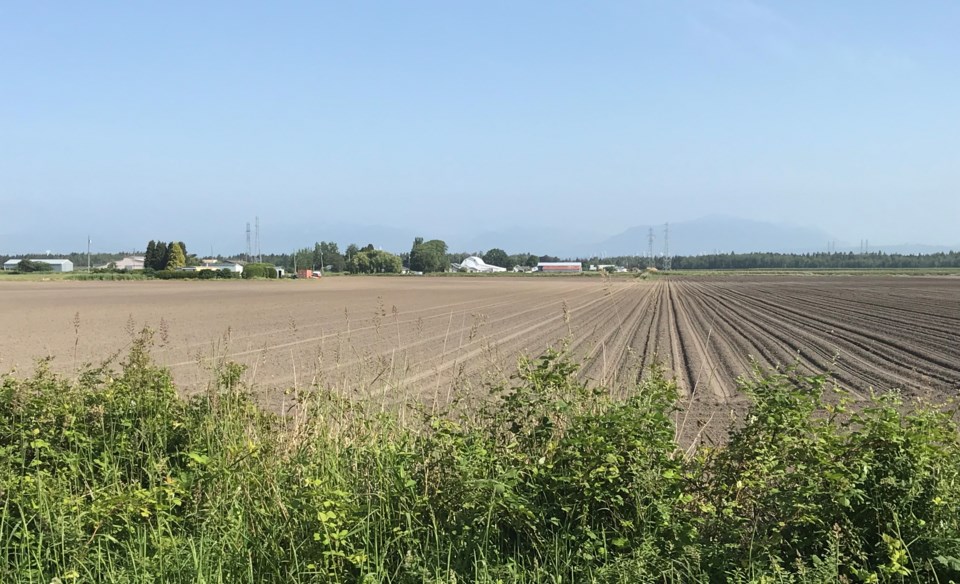Some new money to help farmers adapt to climate change is welcome, but may have limited effect in Delta.
The Extreme Weather Preparedness for Agriculture Program offers a total of $2 million to farmers in B.C., with a $50,000 maximum for each applicant and project.
The aim is to help producers prepare for extreme heat, wildfires, and flooding through projects such as improving cooling systems for barns, improving heat and shade protection for livestock and crops, and preparing farm buildings to withstand wildfires.
“To me, it’s good news for all farmers,” said Peter Guichon, a director of the Delta Farmer’s Institute. “Something is always better than nothing.”
But a major issue for Delta farmers is drought.
“Our biggest thing is irrigation water,” he said, adding that the weather forecast is for the mountain snowpack to be wiped out next week, as the weather warms up to 15 C with lots of rain. “Already, the snowpack is down 50 to 60 percent from normal.”
That means farmers will be hoping for rain next growing season.
The money for the extreme weather preparedness program will be delivered through four streams, wildfire preparedness, flood preparedness, extreme heat, and innovation. The money comes from Sustainable Canadian Agriculture Partnership, funded by both the province and federal governments to improve innovation and resilience in agriculture.
The program doesn’t mention drought.
Guichon said the last five or six years have been dry even though there were good crops last year.
One of the issues farmers face is being able to move water to the fields to grow crops. He said previously there have been ongoing issues with the irrigation canal system that was built during the construction of the South Fraser Perimeter Road.
He explained that the canal was built on soft soil, and, over time, the upward displacement of the canal bed has resulted in a major capacity constraint in the irrigation canal.
However, earlier this month, the City of Delta received $2 million from B.C.’s Agricultural Water Infrastructure program.
The funding will be directed towards upgrades along the South Fraser Perimeter Road irrigation canal, including a culvert upgrade under Ladner Trunk Road and 72nd Street. Additionally, the funds will contribute to the construction of the West Ladner Irrigation Pump Station.
Another problem is beavers building dams in the ditches and blocking the water flow, Guichon said.
“They’re persistent. They build the dam up, Delta comes in and cleans it out with a backhoe … and three days later, it’s all back in there again. I know that’s happened numerous times,” he said.
A ministry spokesman said that other programs are available to help farmers with drought, such as the Beneficial Management Practices program that helps build reservoirs, wells and irrigation systems.
Two new programs introduced this past year for drought are the Agricultural Water Infrastructure Fund and the Emergency Planning and Preparedness Fund, each funded for $20 million.
There are also risk-management programs to help farmers deal with events such as drought, as well as recovery programs.



